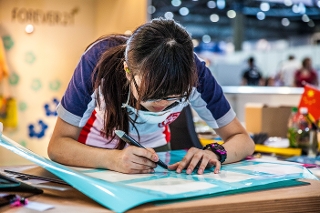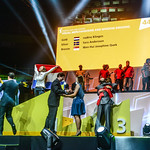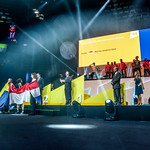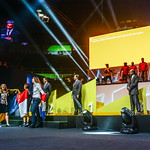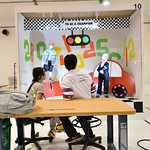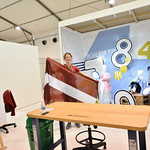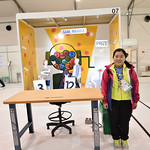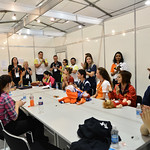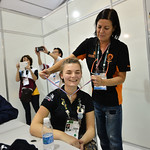Visual Merchandising and Window Dressing
Skill Explained
A visual merchandiser creates window and interior displays in shops and department stores thus is essentially responsible for the ‘look’ of the retail outlet. The chief aim of a visual merchandiser is to maximize sales by communicating with the target audience and creating a positive atmosphere. The visual merchandiser communicates directly with the target audience through their designs and creates a positive impression which in turn impacts on the sales revenue of the business. Whilst not possible to precisely measure the impact of the visual merchandiser’s displays it is accepted that they are an increasingly important element of the marketing and sales mix of a successful retail business.
The visual merchandiser works in retail outlets, which are part of a group with central support functions and in small independent shops where there is greater personal autonomy and responsibility. The activities a visual merchandiser undertakes are based on interpreting and researching a brief, creating a design, and implementation - working with the products and their props.
Work organization and self-management, communication and interpersonal skills, problem solving, innovation and creativity: the ability to develop original ‘eye-catching’ concepts with the WOW factor which positively engage the target market and attention to detail/perfection are the universal attributes of the outstanding visual merchandiser.
The visual merchandiser may work in teams or alone, depending on the size of the business. In medium to large businesses they work very closely with marketing and sales teams. Whatever the structure of the work, the trained and experienced visual merchandiser takes on a high level of personal responsibility and autonomy. From understanding the goals and targets of marketing and sales departments, interpreting the Brief correctly and understanding the behaviour of target markets to creating a display with the WOW factor every stage in the visual merchandising process matters and displays have a close relationship with sales revenues.
With the globalization of visual imagery and the international mobility of people, the visual merchandiser faces rapidly expanding opportunities and challenges. For the talented visual merchandiser there are many commercial and international opportunities; however these carry with them the need to understand and work with diverse cultures, trends and fashions. The diversity of skills associated with visual merchandising is therefore likely to expand.
What the Competitors do at the Competition
The Competitor is judged on:
- Research brief, theme, target audience and product given to design a unique window display producing drawings
- Select and allocate supplied materials to design
- Plan and organize window installation to include time management
- Present, motivate and explain ideas and design to the jury
- Install window display
- Complete installation as a real world example
Competitors
Sara Andersson
Sweden
Mauricio Duarte Ferreira
Brazil
Jasmine Field
United Kingdom
Lisa-Maria Hefter
Germany
Aino Huupponen
Finland
nadine Klingen
Netherlands
Ramesh Punia
India
Wen Hui Josephine Quek
Singapore
Ka Yu So
Hong Kong, China
Hio Lam Tam
Macao, China
Anna Liva Traumane
Latvia
Experts

Annica Bergman
Sweden

Leo Tat Keung Chan
Hong Kong, China

Nayara de Oliveira Namorato
Brazil

Christine Foong
Singapore

Meera Jayaraman
India

Iam Sang Lam
Macao, China

Julianne Lavery
United Kingdom

Paul May
Germany

Erika Scharff
Netherlands

Tarja Vainionpää
Finland

Ilze Zaceste
Latvia

